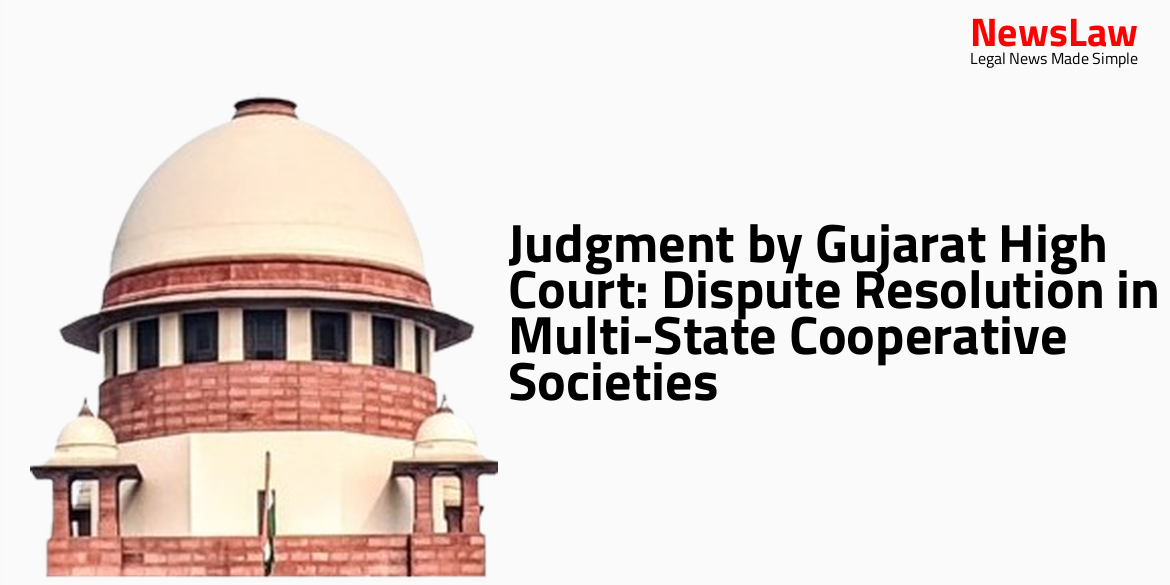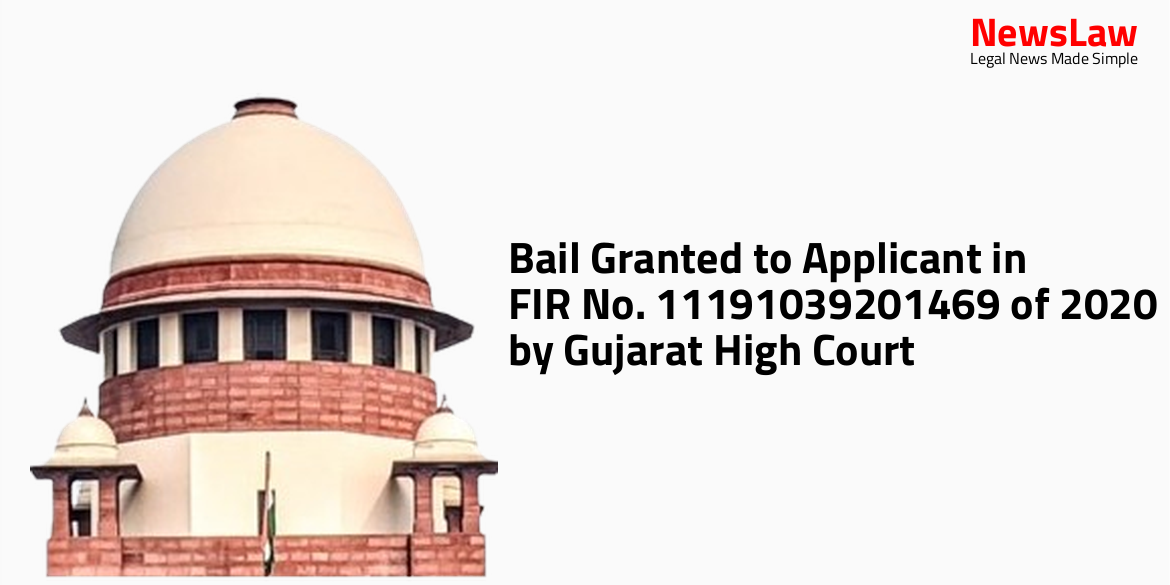In a significant legal development, the Gujarat High Court has rendered a judgment affirming the dismissal of an appeal relating to an arbitral award. The case involved disagreements between parties over contractual obligations, delays, and alleged breaches. The court’s decision reinforces the principles outlined in Sections 34 and 37 of the Arbitration Act. It sheds light on the complexities of arbitration law and the judicial approach towards challenging arbitral awards.
Facts
- An appeal has been filed under Section 37 of the Arbitration and Conciliation Act, 1996.
- The appeal aims to challenge the Arbitral Award dated 17.12.2020.
- The application under Section 34 of the Act, 1996 was dismissed by the Additional District Judge at Rajpipala.
- The dismissal occurred through an order dated 01.03.2024.
Arguments
- Appellant invoked bank guarantees due to claimant’s refusal to sign the second supplementary agreement.
- Challenge raised on the award ignoring main agreement terms and conditions.
- Supplementary agreement subject to State Government approval not granted.
- Alleged breach by claimant under the original agreement’s Clause ‘17.6’.
- Appellant entered into a new contract with a different entity due to claimant’s alleged abandonment of the project.
- Allegations of unfair advantage and liability avoidance by the appellant rejected.
- Appellant’s counter claims for loss of profit and goodwill deemed perverse.
- Claimant’s entitlement for damages under contract terms challenged as being against public policy.
- Court’s dismissal of Section 34 application for patent illegality and public policy conflict contested.
- Limited scope of Court interference under Sections 34 and 37 of the Act, 1996 highlighted.
- Appellant’s history of inviting tenders for Sugar Plant supply noted.
- Contract with claimant signed in December 1990 with time being of essence.
- Bank guarantee invoked in 1991 resulting in dispute escalation and supplementary agreement execution in 1992.
- Claimant’s objection to clauses of the supplementary agreement deemed illegal and unenforceable.
- The claimant asserts that it had placed an order for machinery, even though no payment was made by the respondent, and the machineries were received by the claimant.
- The appellant failed to take delivery of machineries due to non-availability of funds.
- The supplementary agreement was to be treated as part of the original agreement for supply/purchase of machinery and equipment.
- The agreement was duly signed by both parties and their witnesses.
- Issues were framed by the arbitrator regarding readiness to perform contractual obligations, delays, defaults, and abandonment of the contract.
- Allegations of the appellant against the claimant regarding faulty drawings and designs due to non-cooperation were presented.
- State Government approval of the supplementary agreement was disputed by the appellant, but the document implied approval.
- The claimant was to design, supply, and commission a sugar plant by a certain date, but failed to fulfill obligations leading to invoking of bank guarantees by the appellant.
- Arbitrability of the dispute related to the supplementary agreement was decided in the negative by the arbitrator.
- The maintainability of the counterclaim by the appellant was upheld by the arbitrator.
- Allegations of delays, defaults, and financial issues were raised by both parties regarding the completion of the contract.
Analysis
- Section 34 of the Arbitration Act provides for setting aside awards only on limited grounds.
- Courts do not act as courts of appeal when applying the ‘public policy test’ to arbitration awards.
- Arbitrators have the authority to decide based on evidence quality and quantity.
- Arbitral tribunals must decide in accordance with the contract terms.
- Supplementary agreement legality was upheld by the arbitrator.
- Financial difficulties faced by the Claimant were eventually resolved.
- Delays and defaults were attributed to both parties in non-completion of the project.
- Courts do not interfere in plausible interpretations of contract terms by arbitrators.
- No fault found if arbitrator accepts one interpretation over others.
- Time was not considered the essence of the contract due to provisions in the supplies agreement.
- No patent error found in conclusions on individual claims by the arbitrator.
- Modification of bank guarantees by the appellant was deemed justified.
- Courts can set aside an award only on grounds provided in the Arbitration Act as interpreted by courts.
- Section 34 of the Arbitration Act limits a challenge to an award only on specified grounds.
- Interference by courts is limited to specific circumstances like fraud, bias, or violation of natural justice.
- The 1996 Act allows courts a supervisory role for fairness in reviewing arbitral awards.
- Court must be cautious and slow to disturb concurrent findings when an award is confirmed under Section 34 and Section 37.
- Courts should not interfere with an award based on an alternative view on facts or contract interpretation.
- Courts should defer to the view taken by the Arbitral Tribunal unless the award is blatantly unjust under Section 34 of the Arbitration Act.
- Interference under Section 37 cannot exceed the restrictions set by Section 34.
- Interference with an order under Section 34, as per Section 37, is limited.
- There is no ground to interfere with the arbitral award in the present case.
- The challenge to the arbitral award under Section 34 of the Arbitration and Conciliation Act, 1996 lacks merit.
- Section 34 of the Act does not empower modification of the arbitral award.
- The law laid down by the Supreme Court establishes that there is limited scope for interference under Sections 34 and 37 of the Act.
- In light of the Supreme Court’s rulings, alternative views cannot be considered to modify the award based on arguments by the appellant’s counsel.
Decision
- The appeal is dismissed.
- The decision of the lower court is upheld.
- No further relief is granted to the appellant.
- The original names of the parties involved are to be used in the judgment.
Case Title: M/S. SUMAC INTERNATIONAL LIMITED Vs. SHREE NARMADA KHAND UDYOG SAHAKARI MANDALI LIMITED
Case Number: R/FA/1849/2024



